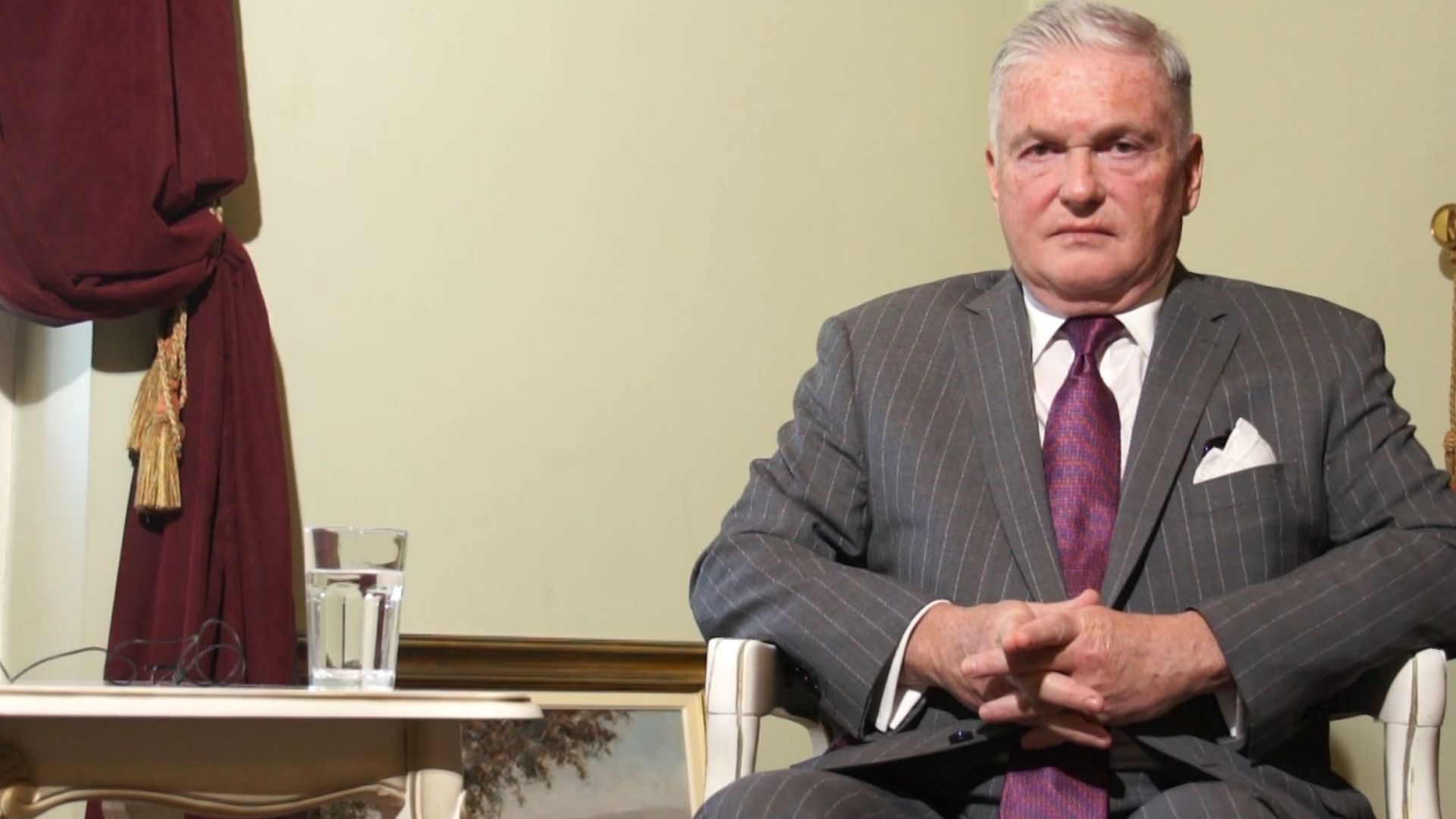Strange things are happening in Romania. A powerful nomenclature of unsavory business and political interests has improved on the traditional South American recipe for coup d’états, and staged one in slow motion, with no curfews or army units deployed in the streets (not so far, at least). It’s all played out in the open, as some kind of political vaudeville on a hastily arranged stage where the “democratic” forces wrestle with a “tyrannical” President for the sake of saving the “oppressed” people.
But reality diverges from the script prepared for mass consumption. For all his real or imaginary faults, President Traian Basescu has been the architect of a judicial renaissance in Romania. During his tenure, which started in 2004, a subservient and corrupt system of magistrates and attorneys has been thoroughly revamped; independent judicial institutions have been set up to prosecute corruption, money laundering, and racketeering at any level, and they set out to work in all earnest; the Constitutional Court1)The Romanian Constitutional Court is the equivalent of the U.S. Supreme Court. has been protected from political interference, and its newly found assertiveness (coupled with all other judicial reforms) jump started a hitherto suppressed feature of post-communist Romania: the rule of law. As a result of this, formerly “untouchable” businessmen and politicians have been subject to indictments and sentencing, none as unthinkable as that of Adrian Nastase, the former socialist prime-minister from 2000-2004, who went to jail in June on charges of illegal campaign finances.
The downfall of Nastase, and especially last chapter sealed at the Rahova prison, made it clear to the thieving caste of Romania embedded in the world of business and politics that it faced an existential threat. Basescu had to go, and all major levers of power in the state ought to be brought under control.
Let’s follow the timeline of events, maneuvers and strikes as they unraveled:
February 6th
Prime Minister Emil Boc resigns from office amid ongoing anti-austerity protests. In a statement to the press he said: “I know that I made difficult decisions, but the fruits have begun to appear. The most important thing is the economic stability of the country.”
President Traian Basescu designates Mihai Razvan Ungureanu as the new Prime Minister, to head a caretaker government whose mandate would be to continue the reforms promoted by the previous government, and ensure political and economic stability until the upcoming general elections scheduled at the end of the year.
Late March to late June
The parliamentary majority of the Democratic Liberal Party (PDL) shrinks to the point of reaching minority status. Twenty or so representatives and senators from PDL defect to the Social Liberal Union2)Social Liberal Union (USL) is an alliance between the Social Democratic Party (heirs to the former Communist Party), the National Liberal Party (re-constituted after the fall of Ceausescu as wannabe heirs of the old Liberal party banned by communists in 1948), and the Conservative Party (another political group which hijacked the name of an old Romanian party; its leader is Dan Voiculescu, a media mogul investigated for money laundering who admitted in 2006 that he was a collaborator of Securitate, the secret police of the communist regime). USL was established in 2011 with the aim to unseat president Basescu, gain parliamentary majority, and form the government. (USL) and minor satellite parties of USL over a period of three months. Dozens of PDL appointees at local administration levels defect to USL as well. This kind of allegiance switch in search of a more convenient political nest has hardly been seen at such pace over a short period of time.
In this way the USL coalition managed to steer the legislative power under its command, without having been granted this power at the voting booth.
April 27th
The government led by Mihai Razvan Ungureanu falls in a vote of no confidence initiated by USL, which passes with a majority of 235 votes in favor. Later that day president Basescu designates Victor Ponta, the leader of the Social Democratic Party, as the new prime minister. He was the sole nomination put forward by any parliamentary group. That group was the USL.
In this way the USL coalition took down the caretaker government appointed by the former ruling party (PDL), and backed by President Basescu. The President, in tune with his constitutional duty, considered the choice presented by Parliament, and decided to hand over the government to the new majority.
May 7th
The USL dominated parliament votes overwhelmingly for the investiture of the Ponta government.
In this way the USL coalition managed to steer the executive power under its control.
June 27th
Prime Minister Ponta issues an emergency ordinance and removes the parliamentary control over the Official Gazette3)Official Gazette is the official paper of legal record in Romania. All promulgated bills, presidential decrees, governmental ordinances and other major legal acts come into effect only when they are published in this gazette. The Official Gazette is normally run by Parliament., placing it under the supervision of the government.
In this way the USL coalition took the Official Gazette under its tutelage.
July 2nd
The government replaces the head of the Official Gazette with a former aide to Valeriu Zgonea, vice-president of the Social Democratic Party.
In this way the USL coalition strengthened its control over the Official Gazette, by appointing a trusted person in charge of what would be published, how soon, and in what order.
July 3rd, act I
The parliamentary group of the Social Liberal Union (the largest force in Parliament) recalls the acting Ombudsman4)Ombudsman is an important institution of the state. Its main purpose is to defend the citizens’ rights and freedoms, especially against administrative and governmental abuse. It is the only office that can challenge the constitutionality of government ordinances and parliamentary bills at the Constitutional Court. and replaces him with a former member of the Social Democratic Party.
However, the appointment of Valeriu Dorneanu to the position of interim head flagrantly violated the legislation in force: firstly, the law governing the organization of the Ombudsman institution does not provide for an interim trusteeship; secondly, the judicial committees of the Parliament did not table a report proving that the previous head of that office had „violated the Constitution and the laws”, as required by law for the dismissal of the Ombudsman.
In this way the USL coalition appointed a trusted person in charge of the office of Ombudsman. The threat of constitutional challenges to governmental ordinances was thus removed.
July 3rd, act II
The parliamentary group of the Social Liberal Union tables a series of motions, follows through with voting sessions, and the speakers of the Senate and Chamber of Deputies are dismissed. Their replacements are voted in: Crin Antonescu (president of the National Liberal Party) becomes the new Senate chief, and Valeriu Zgonea (vice-president of the Social Democratic Party) becomes the new chief of the Chamber of Deputies.
However, the process was deeply flawed. According to the law, only the parliamentary group that makes the initial proposal for a chamber speaker can request his or her dismissal. Both former speakers had been proposed by the parliamentary group of the Democratic Liberal Party, and it wasn’t the PDL pushing a motion for their dismissal, but the USL. Moreover, article 66 (paragraph 3) from the Constitution states that “each chamber shall be convened by its president”; it was not the speakers of the Senate and Chamber of Deputies who summoned the parliamentarians to an extraordinary session for their removal, but only the USL members of the Standing Bureau.
In this way the USL coalition took charge of the second and third positions in the state. Just in case anything was going to happen to the President, a fresh replacement was warming up in the office of the Senate speaker, and if God forbid worse was to come, the newly minted speaker of the Chamber of Deputies was ready to serve too. At any rate, the takeover of Parliament was complete.
July 4th
The Ponta government issues emergency ordinance no. 38. It is duly published in the Official Gazette, and the new Ombudsman finds no fault with it, hence there is no reason to challenge it at the Constitutional Court. Emergency ordinance no. 38 changes the statute of the Constitutional Court, stipulating that it can no longer issue binding pronouncements over the constitutionality of the decisions and rules of procedures enacted in Parliament. In effect, the legal assessment power of the Constitutional Court is downgraded to mere advisory level by executive decree. Parliament was thus exempted by the government from obeying the highest constitutional authority in the land.
In this way the USL coalition removed any potential constraints from the Constitutional Court with regards to impeaching the president, and gave itself free reign over setting the rules of the game, to be as advantageous as possible for achieving its objectives. The system of checks and balances was abolished, and the rule of law was replaced by the unfettered whim of a political mob enjoying majority status.
July 5th
Parliament starts the procedure to impeach the President, by claiming that he had perpetrated “serious actions which violated the Constitution”. Parliament issues an indictment based on seven counts of Constitutional breaches attributed to the President. Crin Antonescu, the new speaker of the Senate, sets a deadline of 24 hours for the Constitutional Court to deliver a ruling. He states that, since the Constitutional Court ruling has only advisory status, the Parliament can proceed with impeachment even if the Constitutional Court rejects the parliamentary indictment.
However, the Constitution does not impose any deadlines on the Constitutional Court with regards to issuing rulings and assessments.
The Ponta government issues emergency ordinance no. 41, which modifies the Referendum Law. Whereas the law had stated before that “The dismissal of the President is approved with the majority of the votes of the citizens registered in the electoral lists”, the new amendment twists the previous requirement to a different effect: „… the dismissal of the President is approved with the majority of the citizens participating at the referendum”. In practical terms, this removes the mandatory threshold of at least 9 million votes overall for the referendum on the President to be declared as valid and binding.
In this way the USL coalition changed the rules of dismissing the President after starting the impeachment process.
July 6th
The Constitutional Court delivers its assessment, but without a final and definitive ruling. However, it responds to each accusation made in the indictment, and it finds that none of them constitute “serious actions which violated the Constitution”.
Parliament votes in favor of impeaching the President: 256 votes for the motion, and 114 against.
Crin Antonescu, as speaker of the Senate, becomes the interim President. Parliament sets the date of a national referendum to dismiss President Traian Basescu to be on July 29th.
In this way the USL coalition managed to topple the President elect. A complete power grab was successfully accomplished.
icon-circle-o icon-circle-o icon-circle-o
The Social Liberal Union relented somewhat eventually – as result of intense pressure from the European Union – and it gave assurances to uphold the original Referendum Law. The referendum will be held on July 29th, within an extended time frame between 7am – 11pm, and it will be validated if 50% plus one from all eligible voters registered on the electoral lists will show up to cast a vote.
The power grab is complete for now, but it is not secured over the long term. For this to happen, the impeached President has to be definitively ousted, and the upcoming referendum could achieve just that. However, it is hard to gauge whether the threshold of 9 million votes will be met or not. There is a possibility that it won’t: after all, vacation season is in full swing, and voter apathy may play a factor in the final turnout. If this were to happen, the referendum ought to be declared invalid and the impeached President could return to office. Really?
Not so fast. Article 3 from decree no. 34 issued by Parliament on July 6th states the following: “In case the Constitutional Court will determine that the conditions for the [Referendum] validity laid down by law were not fulfilled, the Romanian Parliament will take notice of its decision and will decide on the procedure to follow”. What this means: if the referendum is invalidated by the Constitutional Court for any reason (let’s say, less than adequate voter attendance), Parliament will decide on its own what will happen next. Remember, Parliament is no longer required to obey Constitutional Court rulings. It will take notice politely of whatever those supreme justices may have to say, and it will move on to more pressing matters, such as how to plot a new course for the permanent removal of the President.
To paraphrase a well-known maxim from show business, the coup d’état must go on. And there will be unexpected turns, since the thieving caste has granted itself a license to make up things as it charges ahead. But the longer this ugly charade goes on, ever more apparent will become the devastating economic effects. On July 19th the Romanian currency reached historical lows against the euro and the American dollar. This has started to hurt personal savings and credit5)A new exchange rate low was reached on July 23rd: 1 euro for 4.6 lei (Leu is the Romanian currency), and 1 US dollar for 3,79 lei. This is bad news for all Romanians who are paid in lei, but have bank loans in euro (especially mortgages). Their rates keep on increasing with each depreciation of the national currency.. A coup d’état predicated on defending the “oppressed”, but managing only to impoverish its supposed mass beneficiaries has scant chance of prevailing.











![marius-bostan-foto[1] marius-bostan-foto[1]](https://inliniedreapta.net/wp-content/uploads/elementor/thumbs/marius-bostan-foto1-qt9ywoo2b2lgv37b76h9qr5yo6db5vwzoxbuvd4e6o.jpg)












3 Comments
Mihaela Bărbuş
23 July 2012Multumesc, Emil! Foarte utila cronologia. Sper sa nu mai fie nevoie de actualizari dupa 29 iulie!
Silviu
23 July 2012… iata un text bun ca unealta de deschis ochii, pentru cine’i vrea deschisi… Emile, sa mai faci de astea si pe viitor, multumesc!
Aquila Carpatica
23 July 2012bun articol pentru deschis ochii. Ar trebui tradus in romaneste si pentru sustinatorii USL.